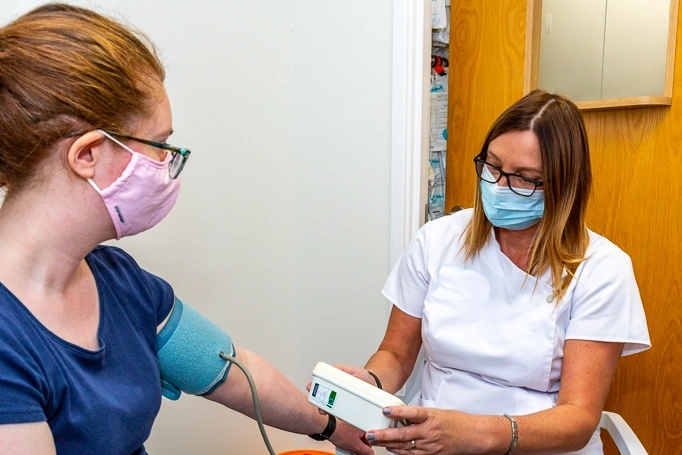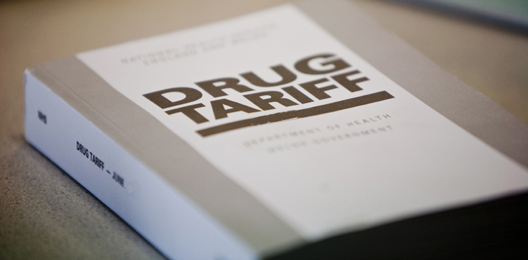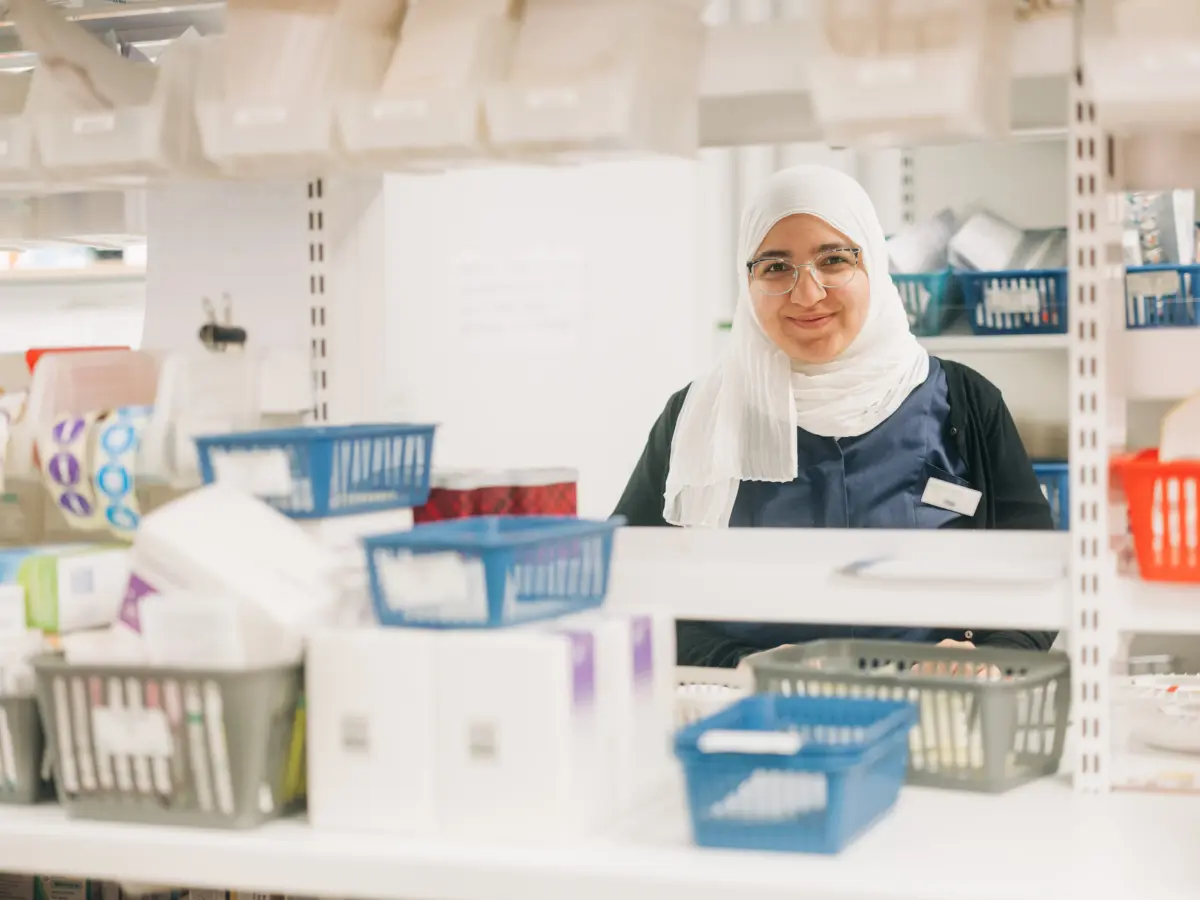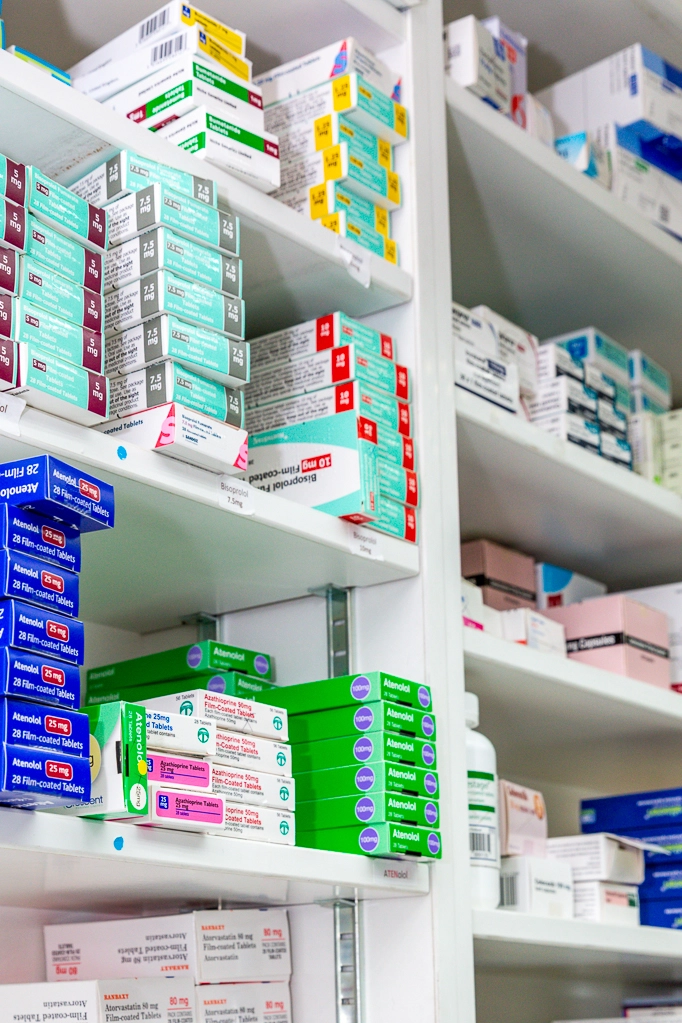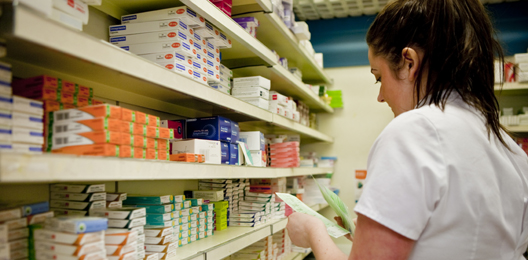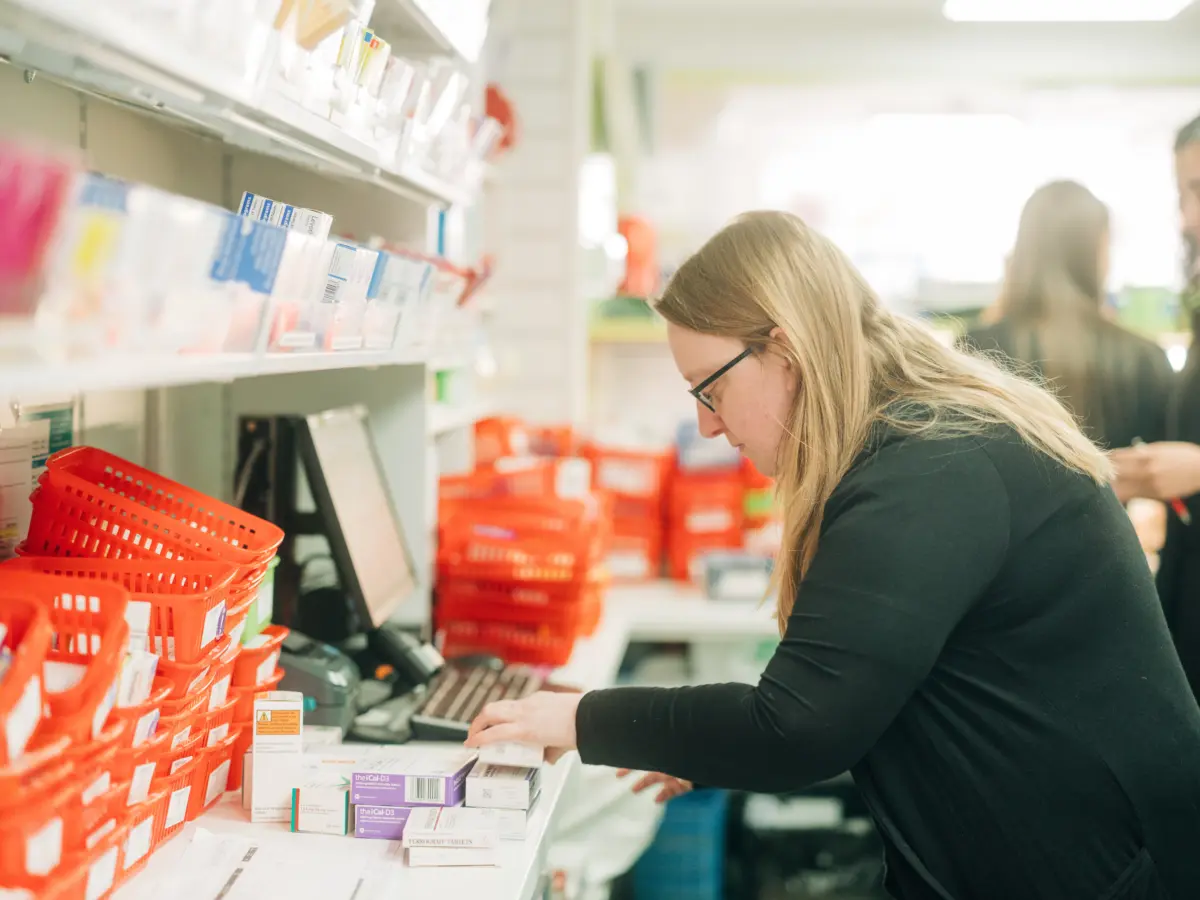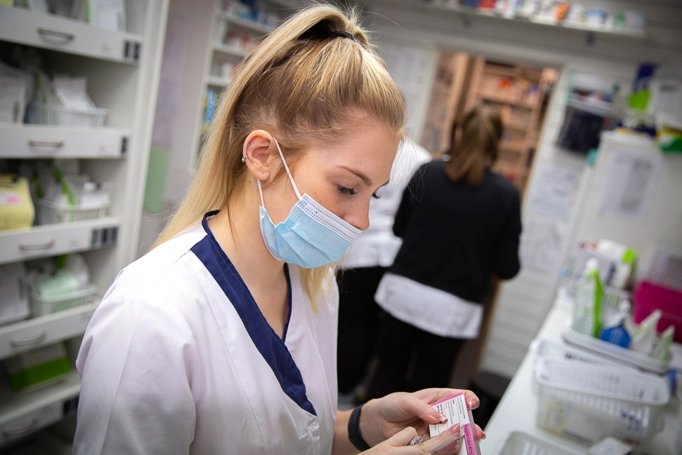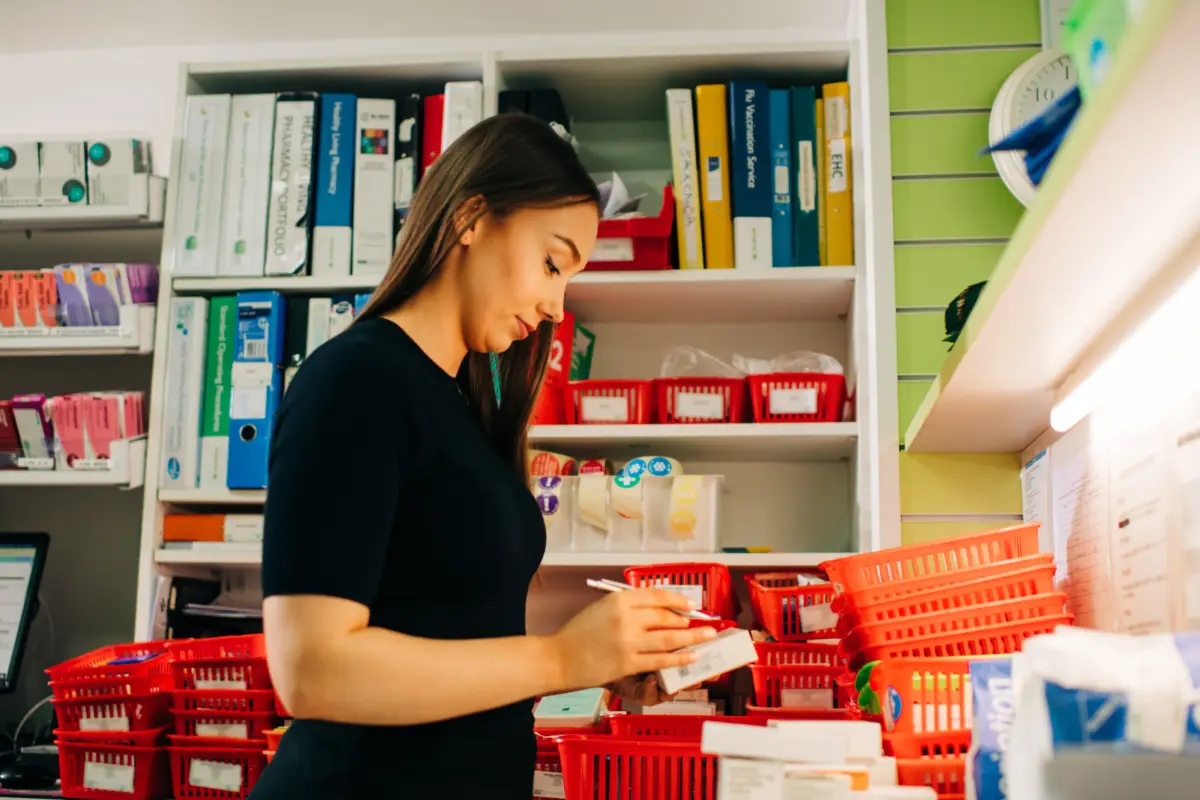About community pharmacy
Published on: 9th August 2013 | Updated on: 30th March 2022
Are you a commissioner?If so, why not visit our Commissioners Portal which includes more information about how community pharmacy can be developed to enable pharmacies to offer a wide range of high quality services for the benefit of patients and the NHS. |
Community pharmacists were known in the past as chemists. Like GPs, community pharmacists are part of the NHS family. Every day about 1.6 million people visit a pharmacy in England.
Community pharmacies are situated in high street locations, in neighbourhood centres, in supermarkets and in the heart of the most deprived communities. Many are open long hours when other health care professionals are unavailable. There are several different types and sizes of community pharmacies, ranging from the large chains with shops on every High Street or in edge of town supermarkets, to small individually owned pharmacies in small communities, in the suburbs and often in deprived areas or rural settings.
The traditional role of the community pharmacist as the healthcare professional who dispenses prescriptions written by doctors has changed. In recent years community pharmacists have been developing clinical services in addition to the traditional dispensing role to allow better integration and team working with the rest of the NHS.
Click on a heading below to read more information.
Community pharmacists are easily accessible with over 11,600 community pharmacies in England located where people live, shop and work. The latest information shows that:
- 89% of the population in England has access to a community pharmacy within a 20 minute walk;
- Over 99% of those in areas of highest deprivation are within a 20 minute walk of a community pharmacy; and
- As the accessibility of community pharmacies is greatest in areas of higher deprivation, they may have an important role to play in reducing inequalities.
Community pharmacy is consequently a socially inclusive healthcare service providing a convenient and less formal environment for those who cannot easily access or do not choose to access other kinds of health service. Most pharmacies now have a private consultation area specifically for confidential or sensitive discussions.
The NHS Community Pharmacy contract for England and Wales was introduced in 2005. Under the contract your community pharmacy will provide the following Essential Services:
The Dispensing Service – working to a prescription, pharmacists will provide you with your medicines labelled correctly following the directions of a GP or other healthcare provider who can write prescriptions (e.g. nurses, dentists or pharmacists). The number of prescription items dispensed by community pharmacies in England in 2011-12 was 885 million.
The Repeat Dispensing Service – this service allows you to collect your regular repeat prescription medicines direct from your local pharmacy for an agreed period of time, without having to go back to your GP. You will need to give your permission to your GP for him/her to share information with your chosen pharmacist. When you need your prescription, instead of requesting it from your GP, you will be able to get your medicines directly from your local pharmacy.
Disposal of Unwanted Medicines – if you have any medicines that you no longer use, you can take them to your local pharmacy for safe disposal.
Promotion of Healthy Lifestyles – this service will provide you with advice on keeping healthy; this could be advice on healthy eating, stopping smoking and exercise. You may be able to get leaflets and written information to help you make healthier choices. Your pharmacy will also take part in local health promotion campaigns such as taking care in the sun and understanding the risks of long term conditions such as diabetes.
Signposting to other Services – your pharmacy will provide you with contact details for additional help if needed from other healthcare professionals, social services or voluntary organisations.
Support for Self-Care – this service helps you to look after and care for yourself and your family. Your pharmacy will provide you with advice on treating minor illnesses, e.g. coughs and colds or long term conditions such as arthritis or diabetes. This support may include medicines which you can buy over the counter from the pharmacy without a prescription.
Further details of the Community Pharmacy Contractual Framework are outlined in NHS Community Pharmacy – a summary.
An example of an NHS service which is provided by most pharmacies is called the New Medicine Service (NMS). The service is for people who have received their first prescription for a medicine to treat any of the following conditions:
- asthma
- lung conditions such as chronic bronchitis and emphysema
- type 2 diabetes
- high blood pressure
- conditions where you take a medicine to control the way your blood clots.
Between 30% and 50% of prescribed medicines are not taken as recommended. This means that a lot of medicines are wasted or are not as effective as they could be. The service will:
- help you to find out more about the new medicine you are taking
- help to sort out any problems you are having with your new medicine
- give you a chance to ask questions about your medicine and discuss any concerns
- help to improve the effectiveness of your new medicine, for example, there may be an easier or better way to take it
- help you to make your own decisions about managing your condition
- help you to improve your health, which could lead to fewer GP and hospital visits.
Ask at your community pharmacy for more information about this service.
As well as national services provided by all pharmacies, the pharmacy contract also includes services that are commissioned at a local level by the local Clinical Commissioning Group (CCG), Local Authority (LA) or NHS England. There are many different services that are operating throughout the country, reflecting the varying needs in different areas.
Examples of such services include:
-
Emergency out of hours services to provide special medicines for the terminally ill;
-
Emergency hormonal contraception services to reduce the incidence of unwanted teenage pregnancy;
-
Screening services (e.g. for diabetes, Chlamydia, high blood pressure etc.);
-
Minor Ailments Services to reduce waiting times in GP practices;
-
Obesity management services;
-
Stop smoking services;
-
Anticoagulation monitoring and phlebotomy; and
-
Supervising consumption of Methadone and provision of Needle Exchange Schemes for drug users.
Community Pharmacy England believes that a lot of these services should be offered through all pharmacies nationally and not just when they are commissioned locally. Services such as sexual health advice, obesity management, stop smoking and basic diagnostic testing should be available, like the MUR service, through all pharmacies to ensure that patients wherever they live, can receive the same level of service from all pharmacies. This is outlined in Community Pharmacy England’s Vision.
Further details of the support pharmacies can provide can be found in What can pharmacy do for your local community?
The underlying principle for all pharmacy education and training is ensuring safe and effective care for patients. This principle underpins pharmacists’ work throughout their undergraduate, postgraduate and continued learning and subsequent career pathway. Students undertake a four year Masters in Pharmacy degree course that teaches them about the origin and chemistry of drugs, the preparation and formulation of medicines and the actions and uses of medicines including physiology, biochemistry, microbiology, pathology and pharmacology. After the degree course the student undertakes a one year placement working in a pharmacy under the supervision of an experienced pharmacist. At the end of this year they take a professional examination and those who successfully complete the examination are able to register as a pharmacist.
Pharmacists continue to keep their knowledge up to date during their career by undertaking continuing professional development.
The daily life of a community pharmacist is hugely varied, drawing on a wide range of clinical and non-clinical competencies and skills. Every pharmacy is required to be operated under the control of a ‘Responsible Pharmacist’. Daily tasks undertaken by community pharmacists include:
-
clinical scrutiny of prescriptions;
-
oversight of safe dispensing processes;
-
providing patients with advice about medicines and treatments;
-
provision of public health information to patients and customers and promotion of wellness;
-
signposting people to other services, self-care organisations or information resources;
-
assessment and treatment for minor ailments;
-
professional oversight of the sales of over the counter (OTC) medicines;
-
liaison with other healthcare professionals;
-
clinical review services for specific patient groups in GP practices, e.g. asthma, diabetes, hypertension;
-
medicines management support for GP practices, e.g. supporting practice formulary and clinical guideline implementation, repeat prescription management; and
-
providing locally commissioned services such as supply of Prescription Only Medicines (POMs) under Patient Group Directions (PGDs), screening services, public health interventions and treatments.
Pharmacists have supported their staff to train and develop to ensure that the extended role of the pharmacist can be achieved by having a team who are competent to support and deliver a safe and effective pharmaceutical service.
| Position | Role |
| Pharmacy Technician | Pharmacy Technicians are professional skilled and essential members of the pharmacy team, who broadly prepare, dispense, supply and issue a wide range and variety of medicines to patients. Whilst they work under the supervision of the pharmacist, Pharmacy Technicians are responsible and accountable for their own accurate and safe practice. They are registered with the General Pharmaceutical Council (GPhC) for their license to practise. APTUK are the professional leadership body for Pharmacy Technicians. |
| Accredited Checking Technician (ACT) | ACTs are pharmacy support staff that have undertaken additional training to allow them to undertake an accuracy check of dispensed medicines. The pharmacist will undertake a clinical check of the prescription during the dispensing process, but working with an ACT means the pharmacist does not need to undertake the final accuracy check of the dispensed medicines in most circumstances.An increasing number of pharmacy contractors are supporting members of their dispensing team to qualify as ACTs in order to improve the efficiency of the dispensing process and to free up pharmacist time to allow them to deliver other services. |
| Dispenser/ Dispensing Assistant | Dispensers support the pharmacist in the dispensing of prescriptions and the management of dispensary stock. They will also generally fulfil the roles of an MCA (see below) when required. It is a professional requirement that dispensing assistants are competent in the areas in which they are working to a minimum standard equivalent to the Pharmacy Services Scottish/National Vocational Qualification (S/NVQ) level 2 qualification or undertaking training towards this. |
| Medicines Counter Assistant (MCA) | MCAs are generally the first point of contact for patients providing a wide range of functions to support the delivery of services and the retail functions of the pharmacy. They undertake the prescription reception process, including supporting patients to complete the declarations on NHS prescriptions. Advice on the treatment of self-limiting illness and basic healthy lifestyle support will be provided by MCAs working to a protocol and under the supervision of the pharmacist. Some MCAs will provide aspects of NHS commissioned services, such as NHS Health Checks, following appropriate training and accreditation. It is a professional requirement that any assistant who is given delegated authority to sell medicines under a protocol should have undertaken, or be undertaking, an accredited course relevant to their duties. |
All pharmacy staff are required to respect the confidentiality of patient information and to follow the NHS Code of Practice on Confidentiality, the Common Law on confidentiality and the Data Protection Act.
There have been some significant developments in the world of pharmacy over recent years; one of the most significant has been changes in the law to allow pharmacists to prescribe. This has helped pharmacists to provide more dedicated care to their patients and to work more closely with GPs and other health professionals.
Pharmacists are also starting to specialise in the treatment of certain medical conditions, such as diabetes; they are known as Pharmacists with a Special Interest (PhwSI). These pharmacists are trained to a much higher level of knowledge in a specific condition and can therefore provide a much more focused and specialist service.
The future will undoubtedly see more developments in community pharmacies across the country; the development of IT systems, additional services such as prescribing and the growth in the numbers of specialist community pharmacists will all help to ensure that patients continue to get excellent care from their local community pharmacy.


